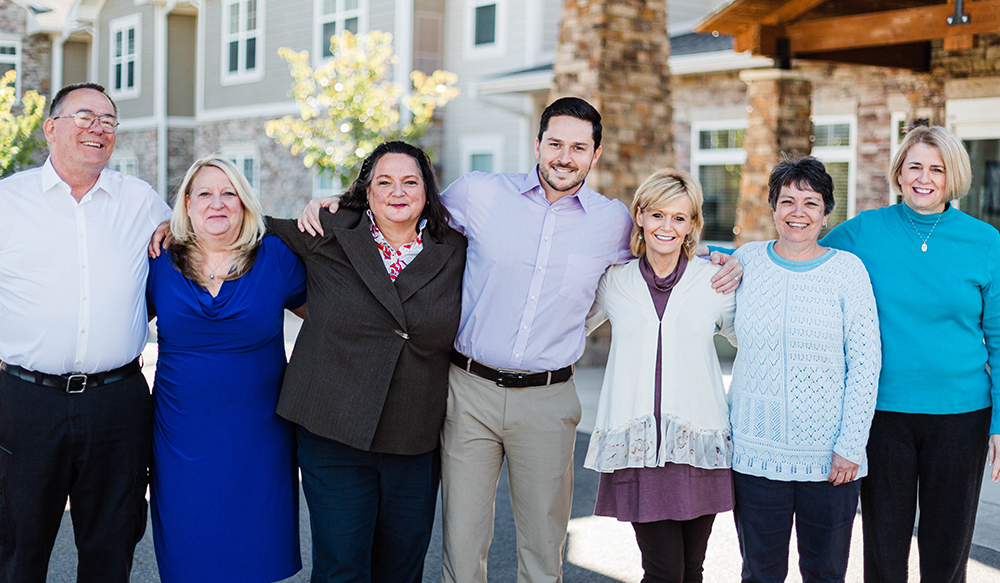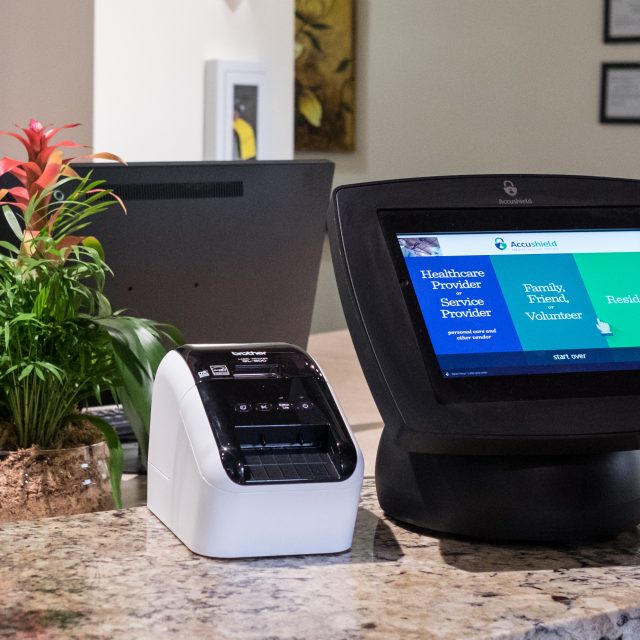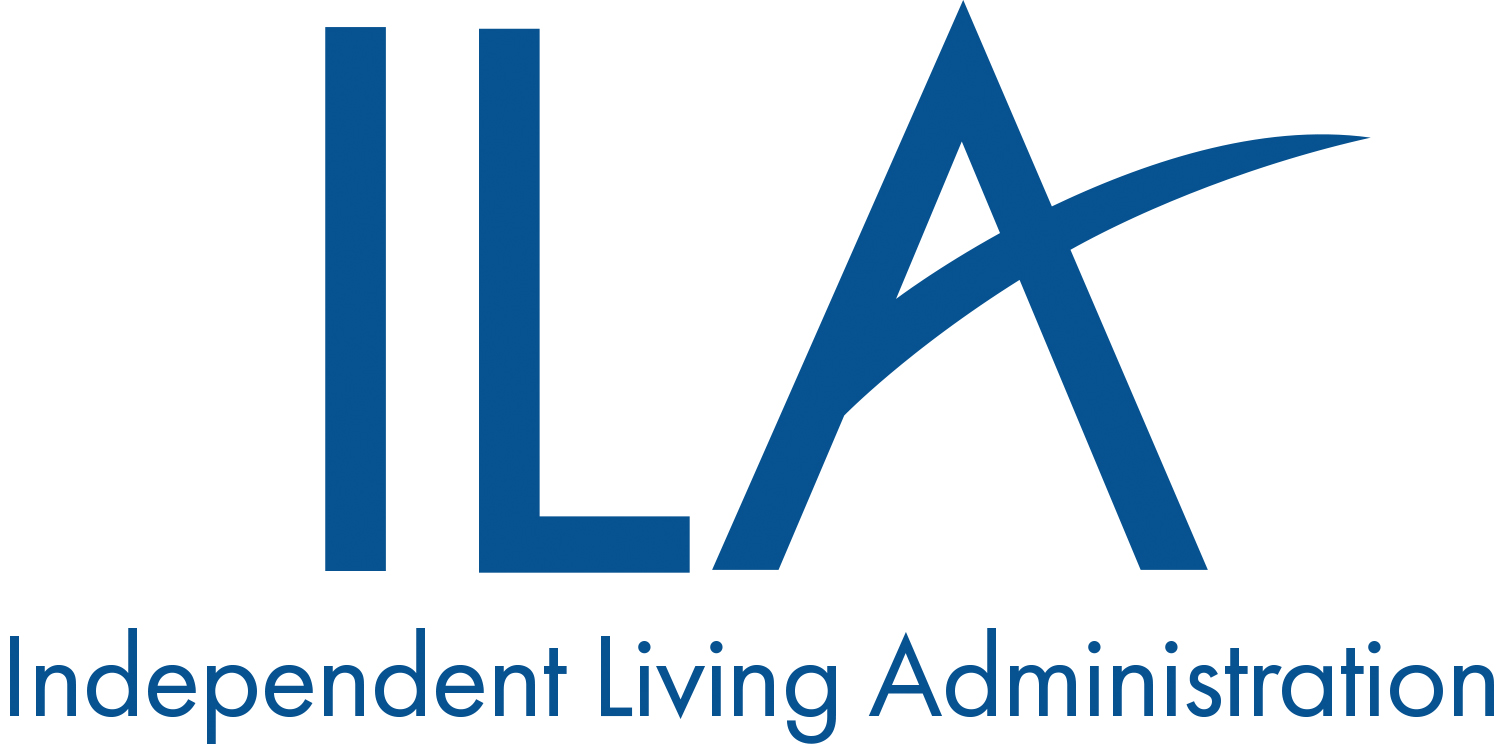The Research and Training Center on Independent Living(RTC/IL) has a 35-year history of research designed to enhance Independent Living for people with disabilities. Research and training projects bridge local, state and national levels, with a commitment to participatory action research and partnership with community-based agencies that support people with disabilities. Areas of emphasis are community living and participation, health care access, secondary health conditions, emergency preparedness, and disability policy. The center's current project on community living for people with disabilities conducts interventions on housing advocacy, home visitability, building community capacity for centers for independent living , health promotion assistance, access to recreation, and training for informal personal assistants.
In addition, secondary data analysis related to community living provides information for policymakers. Recent projects focus on health disparities among people with disabilities, access to housing, and vocational rehabilitation. Melanie is the Executive Director of Linking Employment, Abilities and Potential , a Center for Independent Living, in Cleveland, Ohio. Melanie has been with the organization, which serves individuals with disabilities in six Ohio counties, for 25 years.
Previous positions with LEAP include the agency's Interim Director, Associate Director and Education Coordinator. She has been actively involved in the human service field her entire career, working with individuals with disabilities in a number of capacities, including residential services, vocational rehabilitation and independent living services. Melanie has served on numerous boards and councils on the local, state and national level. She holds a Master's Degree in Education from Cleveland State University and a Bachelor's Degree in Psychology, with minors in Sociology and Theology, from Wheeling University. Today, on the 31st Anniversary of the Americans with Disabilities Act , we celebrate the inclusion and access promoted by the landmark civil rights law for disabled Americans. To commemorate this day, President Biden will sign a proclamation marking the 31st anniversary of the Americans with Disabilities Act.
Community Access services assist individuals to participate in activities that promote individualized skill development, independent living and community integration. Activities must provide individuals with opportunities to develop personal relationships with others in their local communities and to learn, practice, and apply life skills that promote greater independence and community inclusion. Supported Independent Living helps people who live independently with varying levels of assistance. Services and supports typically include training that builds skills in money management, health and safety, grocery shopping and menu planning, medication and health management, and other activities of daily living.
Our staff also connects clients to community resources that help develop social relationships and enhance independent living skills. Chamane Barrow is the Executive Director of the Houston Center for Independent Living . She is a long-time disability rights advocate and has worked with the HCIL organization since 1998, starting at and managing HCIL's Brazoria County CIL satellite office in Angleton, Texas.
Steve has worked to improve employment outcomes for people with disabilities throughout his career. He worked at an organization for over 30 years working to create employment outcomes for people with IDD. He is currently the Executive Director of the Kansas Council on Developmental Disabilities and serves as the President of National Association of Councils on Developmental Disabilities. Councils serve people with intellectual and developmental disabilities through advocacy, systems change and capacity building while developing and carrying out the five-year plan based on the need of the people with IDD in their state. Steve has also served on the Local Area One Workforce Development Board since its inception and was appointed to a second term on the Kansas Employment First Commission.
Ms. Michaud joined the team at New Vistas in 2015 as the Deputy Director and then took over as the Executive Director in 2017. The Departments of Health and Human Services and Housing and Urban Development announced a partnership to increase access to accessible, integrated, affordable housing and the services that support community living for people with disabilities. The Departments also are working to strengthen partnerships between housing and service networks at the state and local levels to streamline access to both housing and community services for people with disabilities . Many states have formally committed to the Employment First framework through official executive proclamation or formal legislative action.
INALLIANCE is committed to providing services that contribute to the independence of adults with developmental disabilities and acquired brain injury. Services focus on job placement, employment training and the facilitation of supports necessary for integrated employment and community living. The Institute for Health and Disability Policy Studies brings expertise in employment incentives, program evaluation, survey design and administration, mixed methods, and health care policy to the project. The mission of the Institute is to conduct timely and meaningful research and evaluation to inform health and disability policy, with the goal of improving access to and quality of care for all people, particularly for those with disabilities and chronic illnesses.
The Institute's research has demonstrated that employment is a health determinant and that the ability to accumulate assets above usual federal limits is associated with better health and quality of life for people with disabilities. IHDPS's work has also included determining whether the move toward increased use of managed care results in diminished access to care for people with disabilities. Their research on the implementation of Medicaid managed care identified multiple problem areas. Jill S. Pleasant, MA, OTR/L is the Associate Director for the Institute for Human Development at Northern Arizona University – a University Center for Excellence in Developmental Disabilities. Her responsibilities encompass oversight for a wide range of IHD's Community Service Programs that directly impact persons across disability categories and age ranges including youth transition and employment. She has coordinated numerous statewide disability conferences where employment of persons with disabilities was and continues to be a focus area.
She has many years of experience providing leadership for assistive technology services in Arizona, promoting awareness and access to assistive technology for persons with disabilities related to inclusive education, employment, and community living. She has also successfully submitted and executed grant and contract projects funded through government agencies and private foundations, the most recent of which is a current HHS Administration on Disabilities Transition Planning Grant. Jessica Minor recently moved back to Indianapolis after living in the DC-area for the past eight years. Currently at accessABILITY, Jessica is the Director of Programs and Assessment where works to develop program implementation plans, outreach strategy and outcomes assessment. She is excited to be back in her hometown, working with a community that she loves. Prior to joining accessABILITY she worked with a health systems organization focusing on process improvement, community engagement and outreach and data analysis.
Jessica has also worked with several disability organizations focusing on the intersection of public health, health policy and people with disabilities. She has extensive experience with program management and implementation, strategic planning and nonprofit management. Jessica holds a Bachelor of Science in Psychology from Xavier University and a Master of Public Policy from University of Maryland. The Center for Research on Aging and Disability Options in the School of Social Welfare has been long recognized as a leader in applied research to improve long-term supports and services policy and practice. The KU SSW is the conceptual home of the strengths perspective, and CRADO has pioneered application of the strengths-based approach to the provision of community-based long-term supports and services. CRADO has specialized in conducting studies and developing interventions to help maintain independence and quality of life for people with disabilities at times of transition.
Researchers have used large state and federal databases to conduct longitudinal research on diversion from Nursing Facilities. CRADO has also done extensive research on mental health needs of both institutionalized and isolated community-dwelling older adults with physical disabilities and their access to services. Kate Brady, PhD ABD has worked in the field of disability policy, service, and systems advocacy for nearly two decades. She is currently Deputy Director at the Georgia Council on Developmental Disabilities, where she brings experiences from work across multiple systems including Vocational Rehabilitation, Medicaid, Social Security, and Workforce Development. Kate thrives leading organizational, team, and individual change through the development and implementation of elaborate research and practice endeavors and is adept at problem identification, process improvement, and program design, implementation, and evaluation.
Kate has consulted for University Centers of Excellence at both the University of Georgia and the University of Massachusetts and worked as Director of Research at the National Organization on Disability. She looks forward to an opportunity to further the powerful impact she hopes her work will have in improving the lives of people with disabilities. After leaving SC DDSN Cyndy became the program manager for the benefits planning assistance and outreach program for a center for independent living called Walton Options. Cyndy remains employed for this CIL and currently operates as the Director for Walton Options South Carolina. Among the programs offered through the CIL are Pre-Employment Training Skills through a contract with the SC Vocational Rehabilitation Department and the SC Commission for the Blind, an Employment First Initiative collaboration with other partners, and the SSA Work Incentives Planning and Assistance Program.
Cyndy has managed the then BPAO and now WIPA program for going on 20 years. She has served on the boards of the SC brain injury association and the statewide independent living council as well as numerous committees and coalitions. She has certifications as a rehabilitation counselor, a brain injury specialist, a life care planner and a work incentives coordinator.
She has also been a volunteer guardian ad litem for nearly two decades and enjoys volunteering as an assistant volleyball and track and field coach for her local high school. Pre-Vocational services are a part of a pathway to integrated jobs in typical community employment. These services are intended to be short term and include many of the elements described in Individual Supported Employment and offer training and skill development for groups of workers with disabilities in the same setting.
Services are provided by agencies established to provide services to people with disabilities. Department of Labor, Office of Disability Employment Policy , is to invest in systems change efforts that result in increased community-based, integrated employment opportunities for individuals with significant disabilities. This priority reflects growing support for a national movement called Employment First, a framework for systems change that is centered on the premise that all citizens, including individuals with significant disabilities, are capable of full participation in integrated employment and community life. The center will join the ICI's rich network of projects related to disability inclusion, and will support the grant partners' existing work in this area. A network of advisors, including self-advocates with intellectual and developmental disabilities, will extend the project's effectiveness.
Planned activities include webinars featuring thought leaders in the field of disability employment. Group Homes provide a residential setting of 24-hour support for clients with varying levels of independence and support needs. These safe environments give clients the opportunity to develop life skills while having assistance with their activities of daily living. Clients take part in activities within their community that foster social inclusion and community involvement. Before coming to New Vistas, Ms. Michaud worked for the Pueblo of Jemez Vocational Rehabilitation Program as the VR Program Manager.
In additional to her VR work, Ms. Michaud assisted with disability advocacy efforts in New Mexico – serving on the NM DVR State Rehabilitation Council, the NM Statewide Independent Living Council, and the Board of Directors for New Mexico Allies for Advocacy. The webinar will include discussion of cultural competency, accessibility & inclusion in medical education, as well as the stigma that surrounds employment of medical professionals with disabilities. Employment is a critical part of community inclusion for both older adults and people with disabilities. For youth with disabilities, a smooth transition from education to employment is essential. Securing and maintaining employment helps many people to achieve independence in their communities, but there are often barriers to accessing meaningful and integrated employment.
Individual Supported Employment services are part of an individual's pathway to employment and are tailored to individual needs, interests, abilities, and promote career development. These are individualized services necessary to help persons with developmental disabilities obtain and continue integrated employment at or above the state's minimum wage in the general workforce. These services may include intake, discovery, assessment, job preparation, job marketing, job supports, record keeping and support to maintain a job.
The Build Back Better agenda would expand access to long-term services and supports for people with disabilities. This investment will also support well-paying caregiving jobs that include benefits and the ability to collectively bargain as well as building state infrastructure to improve the quality of services and to support workers. The funding will take significant steps to help people with disabilities access high-quality care in their homes and communities. Increased Access to COVID-19 Vaccinations and Affirmed the Civil Rights of Americans with Disabilities in Vaccine Distribution. Agencies within the Department of Health and Human Services released funding and resources during the first 100 days to increase access for people with disabilities to the COVID-19 vaccine, provide guidance on discrimination when distributing the vaccine, and support best practices in vaccine access. The Administration for Community Living in partnership with the Centers for Disease Control provided nearly $100 million in grants to help expand access.
Additional resources include an overview of disability rights laws in vaccine distribution from the Office for Civil Rights, and information from the Assistant Secretary for Planning and Evaluation on barriers faced by older adults who cannot leave their homes when trying to access the vaccine. The ACL grant award of $20,000 will support paid internships for students in the Academy for Inclusive Learning, through a partnership with disABILITY LINK, an Atlanta-area center for independent living that provides people with disabilities an opportunity to live and work on their own. Through the partnership, disABILITY LINK will provide training to those supervising the students and to KSU supervisors who employ people with disabilities. We design and organize activities to achieve our clients' learning goals, with a strong focus on community participation, social interaction, and skills-building.
We offer a wide spectrum of recreation, education, physical well-being and life skills training for people with developmental disabilities, ages 18 and up. Our programs feature small-group activities, which build skills, relationships and social interaction within the community. "This book describes the experiences of people with intellectual and developmental disabilities who may have trouble speaking, learning, or living independently," said Sheryl Larson, principal investigator of the RISP project, which collects and publishes data on where people with ID/DD live. Over the decades since the RISP project began, and as legislation and advocacy increasingly demanded better living situations for people with disabilities, the number of people with ID/DD living in state-run institutions has declined from more than 194,650 to fewer than 19,000. Today, about 70 percent of people with ID/DD who receive paid supports live with a family member or in their own home. Still, about 100,000 people with ID/DD live in settings with seven or more people.
At ACL, we are working with our partners across federal government, with states and communities, and with older adults and people with disabilities to create more opportunities for competitive, integrated employment. ACL leads the effort to increase access to community supports for all Americans, while focusing attention and resources on the unique needs of older Americans and people with disabilities. A sample of ACL services is listed to help you connect the pieces on support available in your state or local area. TransCen, Inc. is a non-profit 501 organization, that, since 1986, has been a preeminent leader in providing training and technical assistance in school to work transition initiatives, systems change in education, career development of individuals with disabilities, and related research and dissemination. TransCen, Inc. is headquartered in Rockville, MD with a satellite offices in San Francisco, CA , Milwaukee, WI , and affiliated staff located across the country. The Baby Boom is rapidly becoming the Elder Boom, and people with lifelong disabilities are living much longer.
If cost-effective long-term supports, policies and programs are not crafted, these groups may lose the community-based supports and services essential to avoid institutionalization. Particularly vulnerable groups include people with a disability present from birth or that arose by midlife who now are entering their later decades of life. However, because of research gaps and a dearth of best practice knowledge, human service professionals are largely unprepared to help this population remain independent and active in the community.
The goal of this multi-level approach is to increase integrated employment for all individuals with intellectual and developmental disabilities, and to influence policy and strategy that establish employment as the priority outcome for state service systems. This will be my 10th year with the Minnesota Department of Human Services. I've worked helping people with disabilities navigate benefits, employment and community resources.
I was a certified Social Security Administration Community Work Incentive Coordinator and focused on piloting financial counseling and benefit counseling into vocational rehabilitation services. Through this work I became a licensed financial planner and broker dealer. Section 398 of the Public Health Service Act, the AoD works to improve opportunities for people with disabilities to access quality services and supports, achieve economic self-sufficiency, and experience equality and inclusion in all facets of community life. State Councils on Developmental Disabilities– Councils promote competitive integrated employment through systems change and capacity building efforts. Several Councils support Project Search, which provides internship opportunities for individuals with developmental disabilities.
Individuals with disabilities CAN work and should have the freedom, support, and opportunity to achieve competitive, integrated employment. The Administration for Community Living at HHS released a guide to community-based resources that can help people if they now need assistance to live in their own home, go to work or school, or participate in the community. These resources can provide information about what is available locally; help people connect to services, such as transportation and personal care attendants; help arrange reasonable accommodations and access vaccinations; and more. President Biden's Build Back Better agenda proposes a guarantee of 12 weeks of paid parental, family, and personal illness/safe leave by year 10 of the program, and also ensures workers get three days of bereavement leave per year starting in year one. The program will provide workers up to $4,000 a month, with a minimum of two-thirds of average weekly wages replaced, rising to 80 percent for the lowest wage workers.
The plan has an inclusive definition of family, ensuring workers can care and be cared for by a loved one who is not related by blood, which will greatly benefit many communities, including LGBTQ+ individuals and people with disabilities. ODEP recognizes that many states desire to align their efforts to support individuals with disabilities toward an Employment First approach, but may not yet possess the capacity, experience or technical resources necessary to lead and facilitate such change. To address this need, ODEP has initiated the Employment First State Leadership Mentoring Program , a cross-disability, cross-systems change initiative. A new research and training center based at the University of Massachusetts Boston will develop and test support models and analyze policies that help people with intellectual and developmental disabilities find quality employment. Centers for Independent Livingare consumer-controlled, community-based, cross-disability, nonprofit agencies that provide an array of independent living services, including services that can help with employment. Overnight Planned Respite Services provides families and caregivers with a short-term intermittent break in caregiving.
These services provide person-centered support, appropriate staffing and supervision to meet health and safety needs, and planned activities for the individual in the community. Employment services provide ongoing support services and training for eligible persons with paid jobs in a variety of settings and work sites. These include individual supported employment, group supported employment, and prevocational services. These may be individual or group options in the community and specialized industry settings. If you do not qualify for Community First Choice, you may be eligible for Medicaid Personal Care . MPC services provide individual provider or agency support in order to meet a person's needs for assistance with activities such as bathing, dressing, eating, meal preparation, housework, and travel to medical services.
Clients must meet financial eligibility for Medicaid and functional eligibility for the MPC program. Link to the Youth Employment Solutions (YES!) Center to support AIDD funded grants to six Partnership in Employment states to help improve employment outcomes for transition-aged youth and young adults with intellectual and developmental disabilities. My current role is the Administration on Community Living's State Partnership brain injury grant manager. I coordinate and manage the brain injury partnership grant in collaboration with Minnesota's TBI Advisory Committee liaison, BI Interagency Leadership Council, tribal liaisons, and the Minnesota Brain Injury Alliance. I have been busy building partnerships to help create strategies to fund, manage, deliver, and evaluate awareness and services for people with brain injury. My goal is to continue to support the person-centered services offered to people with disabilities, with a focus on brain injury infrastructure, training, and education opportunities statewide.




























No comments:
Post a Comment
Note: Only a member of this blog may post a comment.